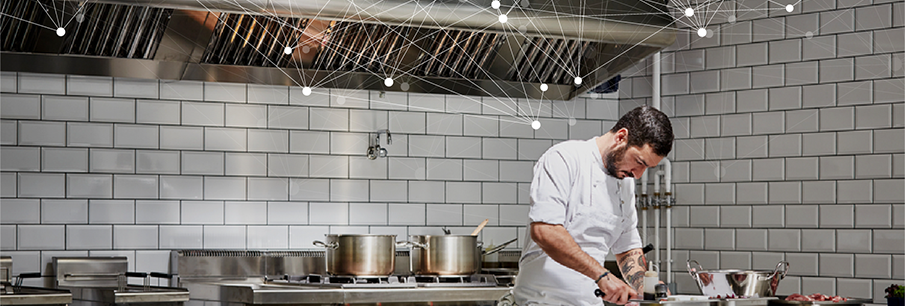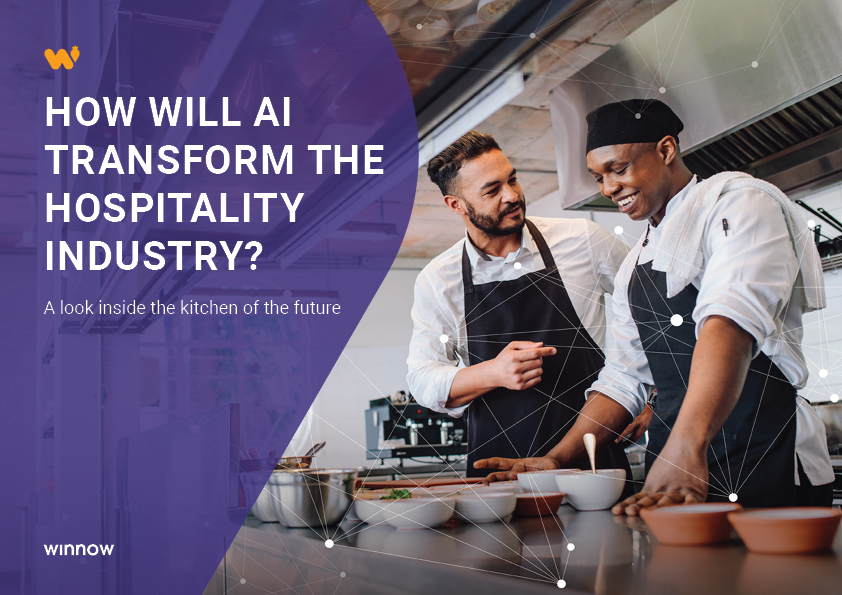The relevance of Artificial Intelligence (AI) in today’s business landscape is ever evolving. We still do not fully comprehend the potential that AI has to revolutionize the way we live, or how it can help us to solve new problems.
For instance, can the field of AI technology lead us to a more sustainable future?
The myriad forms of AI - that include big data, deep learning, computer vision, and cloud computing - are hugely reliant on the use of power and heat to function. Could AI even be detrimental to the environment?
This blog will look at five examples of how AI is helping companies to become more sustainable through reducing energy consumption, prevent over-fishing, and reduce the use of chemicals.
Machine learning helps to cut energy consumption by 40% in Google’s data centers
As you can imagine, Google is dependent on their technological infrastructure. The company requires an enormous amount of data centers for all of its operations, including 63,000 Google searches per second.
If not managed efficiently, data centers consume a massive amount of power. Global data centers used about 3% (roughly 416 terawatts) of the total electricity last year, nearly 40% more than the entire of the United Kingdom.
As one of the biggest energy-consumers in a data center is the cooling required, Google has developed super-efficient servers to cool down data centers together with leading AI business, DeepMind.
Through this partnership, Google is cooling their data centers in a more efficient way through the use of machine learning and artificial intelligence. They have managed to reduce energy consumed for cooling by an incredible 40% through the creation of a more efficient framework to understand data center dynamics and optimize efficiency.
The AI system predicts how different combinations of potential actions will affect future energy consumption.
It then identifies which actions will minimize energy consumption while maintaining safety standards. Those actions are sent back to the data centre, where the actions are verified by the local control system and then implemented.
With this improvement in efficiency and Google’s target of being powered 100 percent by renewable energy, this is an important step in reducing total carbon emissions into our environment.
Reducing food waste through computer vision technology
Measuring food waste is an age-old problem for the hospitality sector. Winnow’s data collected in kitchens around the world shows that 5%-15% of purchased food ends up being wasted.
Winnow Vision is cutting-edge food waste technology that allows kitchens to automatically track food waste. It uses computer vision (a form of artificial intelligence) to help chefs easily pinpoint waste, cut costs and save time. The environmental and social impact Winnow has by reducing food waste is massive, with over 36 million meals saved from going to landfill yearly.
As the first pioneer of Winnow Vision in Japan, Tokyo Hilton Bay brought Winnow's technology into its kitchens to fight food waste with AI and build the kitchen of the future. Through Winnow Vision, Hilton Tokyo Bay changed how they approach food management. Winnow has been working with Hilton Tokyo Bay since January 2020 to help them leverage data analytics to reduce food waste. The team has successfully cut food waste at Hilton Tokyo Bay by 30%, that is equivalent to saving more than 17,016 meals and over ¥3,3 million or US$31,000 annually.
Catering company, ISS has a target to halve food waste by 2027, three years ahead of Sustainable Development Goal 12.3. This led them to partner with Winnow in 2018. The results ISS Guckenheimer has seen so far have been impressive. By cutting food waste by 23% they saved $2.6 million annually and diverted over 1 million meals a year from landfill across 34 sites.
Increased transparency and awareness around over-fishing
Not only does IUU fishing (illegal, unreported, and unregulated fishing) cost the global economy up to $23 billion annually, it is also unsustainable as the numbers of fish stocks are declining around the world.
The Global Fishing Watch platform originated as a collaboration between Google, SkyTruth and Oceana. The platform is meant to show near real-time vessel movement in the ocean.
Oceana is dedicated to protecting and restoring the world’s oceans on a global scale and SkyTruth is a digital mapping non-profit organization. This marriage between AI and satellite data can increase transparency and awareness around over-fishing.
Global Fishing Watch uses machine learning to train the system to identify suspicious boat activity at sea. It automatically plots suspicious areas on the map, highlighting hotspots that warrant further investigation.
Governments are also partnering with Global Fishing Watch. The Indonesian government officially made its vessel monitoring system data public and Peru made a similar commitment.
This is significant as they are two of the largest fishing nations in the world. This marks the start of a new era in the fight against IUU - and is in part thanks to the use of AI to highlight the problem of over-fishing.
AI reduces 90% of the chemicals sprayed on agricultural produce
There is potential for AI to be utilized in the agriculture sector to boost productivity and efficiency while being more environmentally friendly. Technology like machine learning, image recognition, and predictive modelling are being used in the agriculture industry.
This is a step in the right direction to produce enough food to feed a growing population.
aWhere provides agricultural information and insight for real-time agriculture decisions globally. They use satellite imagery to gather over 7 billion data points around the world daily.
It then uses machine learning to forecast weather, analyze crops, and help farmers increase yields and profits.
Plantix, a mobile app that uses image recognition to detect plant diseases, pests, and soil deficiencies affecting plant health. The user simply clicks a picture of the plant and within an instant, they get information about the plant species and the potential disease it has.
It is able to do this by utilizing the latest machine learning technology. With each image, the system becomes more accurate. The app also connects the community of scientists, farmers and plant experts to each other, enabling discussion and learning.
All of these tools help farmers reach a higher crop yield, which in turn leads to fewer resources being used to produce more food. This is essential if we hope to feed our growing population in the years to come.
AI is helpful for water leakage management
WINT uses artificial intelligence to detect leaks, thereby conserving water and preventing damage in commercial and government buildings. Water damage caused by leakage not only wastes water but it can also cause serious property damage.
On average, buildings waste 25% to 30% of water consumed. Atlantis Casino Resort Spa, in Reno, Nevada, uses 6.5 million gallons of water every month. Since employing WINT late last year, the director of facilities, Perry Sanders, reported recently they had already saved $36,000 after investing an initial $48,000. He also said the system was remarkably accurate, detecting hidden leaks that the staff couldn’t find.
The companies mentioned in this blog are embracing AI not only with the aim of improving efficiency, but also to operate more sustainably and do the right thing by the planet. These examples demonstrate that AI is already helping us to tackle climate change. This view corresponds with a survey done by Intel from over 200 decision-makers working in environmental sustainability. 74% of respondents agree that AI will help solve long-standing environmental challenges.
If we are to solve one of the biggest problems the world is facing today - climate change - we might just have to enlist the help of AI’s enormous potential. We can all take some inspiration from these forward-thinking companies that are taking steps to future-proof their business and leverage new technology to solve problems.
Read our free guide below to find out more about how you could use AI in your hospitality business.
Maria Sanu
Topics: Opinion Pieces & Insights












Comment on my blog